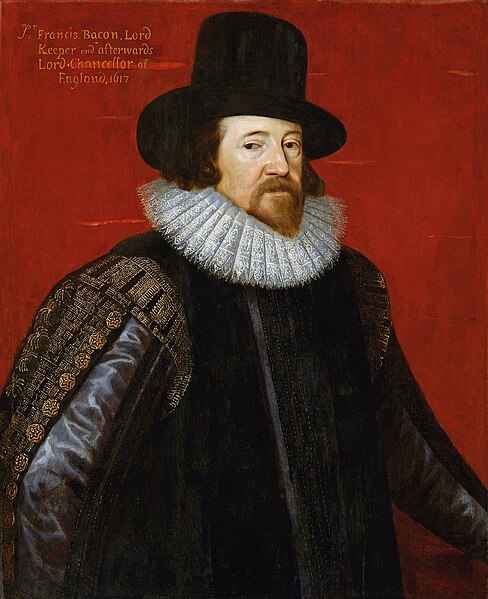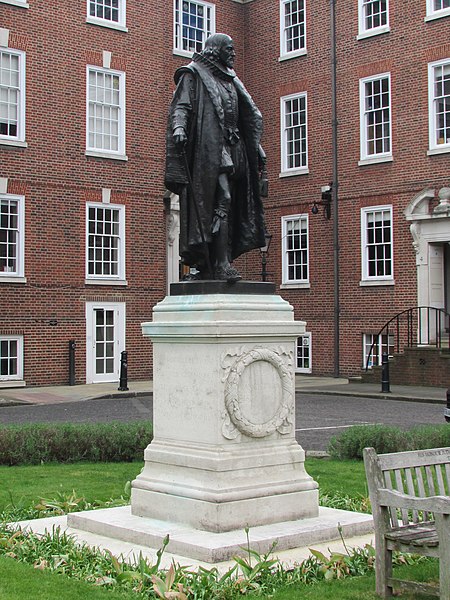New Atlantis is an incomplete utopian novel by Sir Francis Bacon, published posthumously in 1626. It appeared unheralded and tucked into the back of a longer work of natural history, Sylva Sylvarum. In New Atlantis, Bacon portrayed a vision of the future of human discovery and knowledge, expressing his aspirations and ideals for humankind. The novel depicts the creation of a utopian land where "generosity and enlightenment, dignity and splendour, piety and public spirit" are the commonly held qualities of the inhabitants of the mythical Bensalem. The plan and organisation of his ideal college, Salomon's House, prefigured the modern research university in both applied and pure sciences.
A Newfoundland stamp which reads "Lord Bacon – the guiding spirit in colonization scheme"
Francis Bacon, 1st Viscount St Alban PC, known as Lord Verulam between 1618 and 1621, was an English philosopher and statesman who served as Attorney General and Lord Chancellor of England under King James I. Bacon led the advancement of both natural philosophy and the scientific method, and his works remained influential even in the late stages of the Scientific Revolution.
Portrait, 1617
A young Francis Bacon depicted in a National Portrait Gallery painting; the inscription around Bacon's head reads: Si tabula daretur digna animum mallem, Latin for "If one could but paint his mind".
The Italianate entry to York House, built around 1626 in Strand, the year of Bacon's death
Bacon's statue at Gray's Inn in London's South Square





